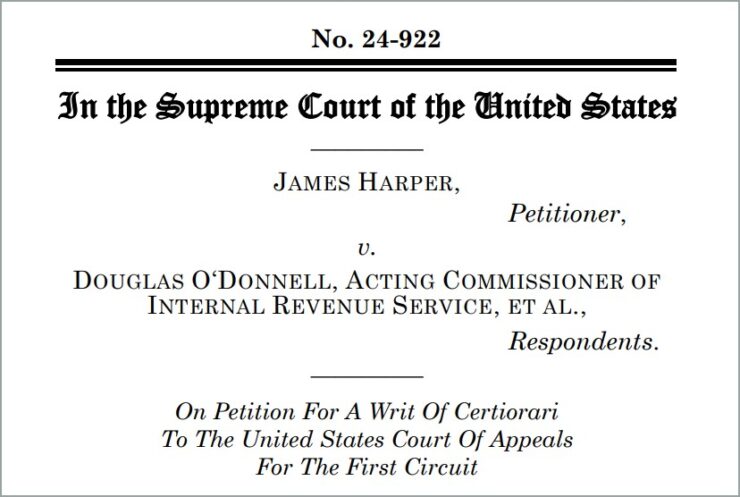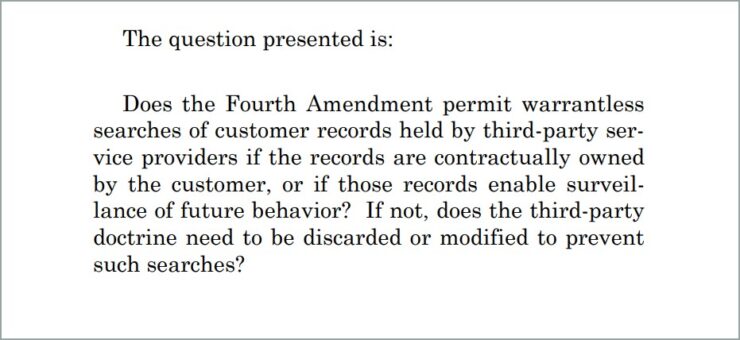Elon Musk’s X has entered the legal fray over digital privacy, urging the U.S. Supreme Court to curb the federal government’s ability to demand user data from crypto platforms without individualized suspicion.
In a newly filed amicus brief, X argues that blanket data collection requests, often known as “John Doe” summonses, violate the constitutional rights of exchange users and set a dangerous precedent for unchecked surveillance.
The case centers on James Harper, a former Coinbase customer who has challenged the IRS’s move to collect his and 14,000 others’ crypto transaction histories from the exchange.
Harper maintains that the IRS bypassed proper legal channels when it issued subpoenas without alleging wrongdoing on his part. The dispute has become a flashpoint in the ongoing debate over how much access federal agencies should have to user data on blockchain networks and digital platforms.

X’s brief underscores that users like Harper had explicit agreements with crypto platforms assuring them of data privacy and control over personal records. The document further warns that allowing such suspicionless subpoenas could weaken legal protections for users—not only in the crypto sector but across all digital platforms.
While Coinbase was the main target of the original request, other major crypto firms—including Kraken and stablecoin issuer Circle—have received similar subpoenas in recent years, pointing to a broader government strategy of mass data gathering from crypto businesses. With the case now in the hands of the Supreme Court, X’s intervention places it among a growing list of tech firms publicly defending user privacy in the age of digital finance.
Constitutional Grounds and Fourth Amendment Violations
At the heart of X’s legal argument is a constitutional question: does the Fourth Amendment permit the government to retrieve a user’s financial records from a third-party service—without a warrant—if that data is contractually owned by the user?
In the brief submitted on Friday, X contends that such practices breach constitutional protections against unreasonable searches and seizures. The company argues that Harper’s user agreement with Coinbase explicitly recognized his ownership of the account records and promised to safeguard his privacy.
The filing questions whether the government should be allowed to sidestep warrant requirements simply because the data resides on a platform rather than on a personal device.

Much of the dispute centers on the “third-party doctrine,” a legal precedent that emerged in the 1970s, which holds that individuals forfeit certain privacy rights for data shared with third parties. X argues that this doctrine, shaped in an analog era, no longer reflects the complexity of modern digital platforms where users routinely entrust personal data to service providers under privacy assurances.
If left unchallenged, the brief suggests, such doctrine could allow government agencies to effectively conduct broad surveillance operations by targeting the data custodians rather than the individuals themselves.
X’s involvement in the Harper case signals a broader industry reckoning over the balance between user privacy and regulatory oversight in the digital age. As crypto exchanges and Web3 platforms increasingly serve as custodians of sensitive financial data, the legal frameworks governing third-party access are being reexamined at the highest levels.
A ruling in favor of Harper could force a recalibration of longstanding surveillance doctrines and reshape how government agencies interact with digital service providers. For X and other tech platforms, the case represents not just a legal battle, but a pivotal moment in the evolving fight to redefine digital privacy in a decentralized financial era.
Quick Facts
- X filed an amicus brief urging the Supreme Court to restrict warrantless government data requests.
- The brief supports Coinbase user James Harper’s case against the IRS’s collection of user data without individualized suspicion.
- A favorable ruling could establish stricter legal standards for government access to user data on digital platforms.
- This action aligns with a broader industry trend of tech companies advocating for enhanced user privacy protections.





